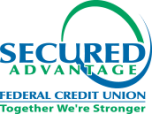Is a Reverse Mortgage Right for You?
Reverse mortgages. Depending on your circumstances, choosing between a reverse mortgage or another option can be easy or difficult. Most of us have heard about reverse mortgages, but few know how they work.
“If you haven’t saved as much as you thought by a certain time, or your expenses are more than you thought they’d be, a reverse mortgage could be an option. These types of loans are structured so that it’s basically like getting an equity loan or mortgage on your property,” said Loan Specialist, Clint Bramlett. “Instead of paying the loan back, you live in your house until you decide to move out, or death. After either of these events, the bank will then take the house and sell it. Hopefully for a profit.”
If a homeowner opts for a reverse mortgage, they are no longer liable for the payments on the house. However, the taxes and insurance must be paid or the loan will be foreclosed.
“Homeowners can elect to take the money in a lump sum or a line of credit similar to a home equity line of credit,” Bramlett explained. While you won’t have a monthly payment, the interest on the loan will increase.
“Before a homeowner can begin the process of obtaining a reverse mortgage, they must go through financial counseling with a HUD-certified counselor,” Bramlett added. There are several qualifications a homeowner must meet for a reverse mortgage loan. Including:
- At least 62 years of age
- Live in the home as a primary residence
- Sufficient equity in the home
- Meet financial eligibility criteria established by HUD
Because a reverse mortgage is intended for a more mature audience, Bramlett states; “It’s structured so there are some protections in place for the demographic it serves.” A reverse mortgage isn’t a good idea for everyone. For example, if you’d like to keep your home in the family, a reverse mortgage is not the right choice. When the homeowner passes, the bank then sells the house to recoup the money it’s owed.
If you’re considering a reverse mortgage, “You’re at the point in your life where you’ve retired, you have equity in your property and you’re passing a true piece of heritage. It’s a nice inheritance for your kid,” Bramlett said. With a reverse mortgage, “You can’t pass it down. It’s no longer an asset to pass down to your kids.”
There are pros and cons to a reverse mortgage. It’s an excellent way to eliminate your monthly mortgage payment, put cash in your hands and keep your home. However, it’s important to remember that not all properties will qualify. You must have a certain amount of equity in your home, and the reverse mortgage is secured by placing a lien on your home.
“Taking out a reverse mortgage is a big decision,” Bramlett cautioned. There are several things to take into consideration. First and foremost, Bramlett urges homeowners to do their research before beginning the process. The two most important pieces of advice Bramlett offered for homeowners were: talk to a financial planner and don’t take more than needed.
“The reverse mortgage should be a piece of the larger picture with your other investments,” Bramlett said. “The best idea is to get the money in a line of credit so you can use it when you need it. If you don’t need it, don’t use it. Don’t leverage it to the max.”
What is your mortgage situation? Have you or someone you know considered a reverse mortgage? Let us help or answer any questions you have.
Stop by a branch today or give us a call at 800.468.5153.



